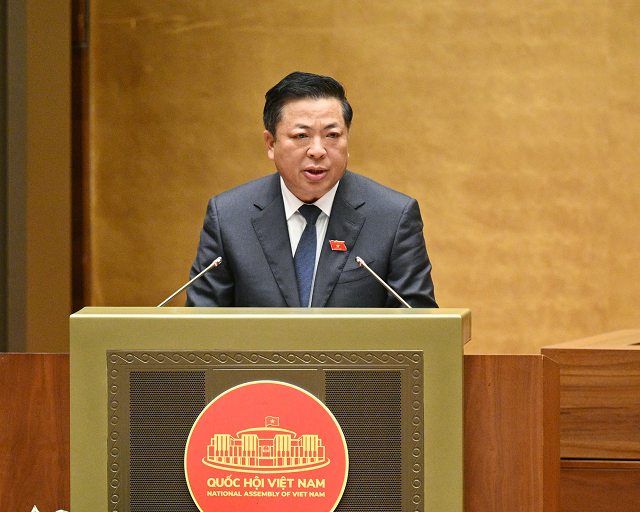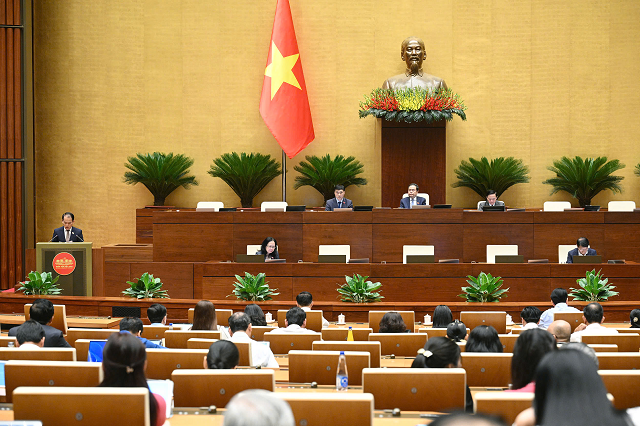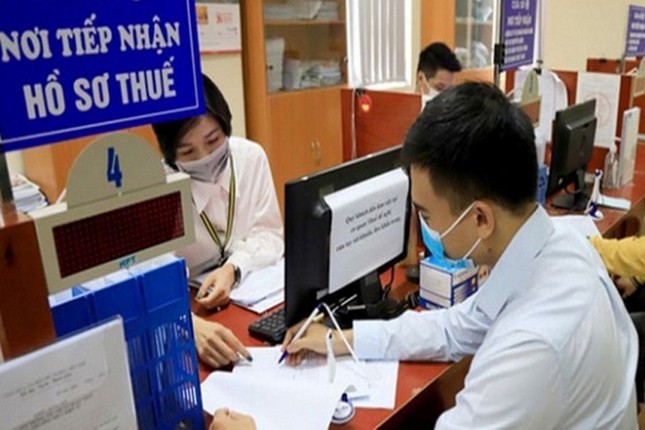
Minister of Construction Tran Hong Minh presents a draft resolution on pilot mechanisms and policies for social housing development
|
According to Minister Tran Hong Minh, providing housing for citizens, especially low-income groups, has always been a key task for the Party and the State. Despite limited state resources, social housing policies in the past have positively contributed to improving people’s living conditions, particularly for workers in industrial zones.
However, the progress of social housing construction remains slow, with many procedural obstacles deterring businesses from participating. Moreover, the absence of a long-term financial institution to support project implementation is a significant bottleneck.
Among the proposed solutions, the most notable is the suggestion to establish the National Housing Fund, a non-budget financial institution responsible for mobilizing and allocating resources for social housing development. The fund is expected to receive capital from various sources: state budget, voluntary domestic and foreign support, revenue from land use after infrastructure investment, sale of public assets, and other legal sources.
The goal is to create a stable and sustainable capital flow for investing in social housing and housing for officers, officials, public employees, and laborers – groups that are vulnerable to housing price pressures.
Streamlining Procedures
The draft resolution also proposes pilot mechanisms with breakthrough reforms, including streamlining administrative procedures. It suggests delegating authority to the provincial People’s Committees, the Ministry of National Defense, and the Ministry of Public Security to approve investment policies and appoint investors without bidding. With this process, the time for handling dossiers can be reduced from over 275 days to 75 days, a 70% decrease compared to current regulations.
Additionally, some other procedures, such as appraisal and approval of detailed planning tasks and feasibility reports, are proposed to be omitted in specific cases. If a project applies standard or typical designs published by competent state agencies, it will be exempt from obtaining a construction permit.
The selection of contractors for social housing projects using public capital, union capital, or capital from state-owned enterprises is also suggested to be carried out through a simplified direct appointment procedure to expedite implementation.
Minister Tran Hong Minh stated that the draft does not create new administrative procedures but focuses on clear delegation of powers. At the same time, all policies ensure the principle of equality and non-discrimination based on gender or ethnicity in accessing social housing and participating in investment development.

National Assembly listens to the presentation of the draft resolution on pilot mechanisms and policies for social housing development
|
Need for Strict Control and Prevention of Policy Abuse
While agreeing with the new direction, the Committee for Legal Affairs and Justice, chaired by Hoang Thanh Tung, emphasized the necessity of establishing a risk prevention mechanism to avoid policy abuse. The proposed special policies are flexible and highly reformative, but without proper control, they may lead to resource waste, public asset leakage, and management negativities.
Particularly, the committee drew attention to the “construction investment” function of the National Housing Fund – whether the fund has the capacity and legal status to directly act as an investor, as required by the Law on Housing and related laws. Clarifying the fund’s legal status, organizational model, and scope of operation is deemed crucial before implementation.
Additionally, the contents of Article 5 of the draft, related to the appointment of investors and approval of investment policies, should be reviewed to ensure transparency and consistency, avoiding confusion between projects using and not using public investment capital.
This draft resolution aims not only to boost social housing development but also to balance supply and demand in the real estate market, indirectly affecting commercial housing segments. It contributes to stabilizing prices and promoting the healthy and sustainable development of the real estate market.
If approved, this could be one of the most breakthrough policies in the field of social housing in recent years – offering low-income citizens not just a roof over their heads but a genuine opportunity to settle down and stabilize their lives.
















